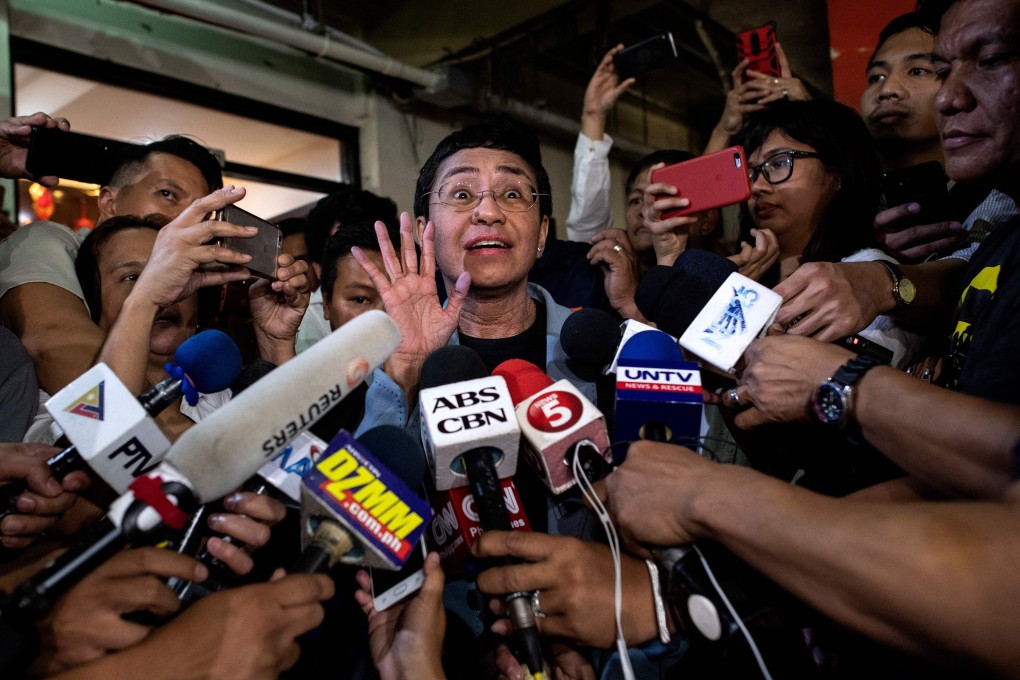Advertisement
Philippine journalist Maria Ressa found guilty of cyber libel
- Ressa and her news site Rappler have been the target of legal action and probes after publishing stories critical of President Rodrigo Duterte’s policies
- Human rights lawyer Amal Clooney, who is part of Ressa’s legal team, said the conviction was ‘a stark warning to the press, and a blow to democracy in the Philippines’
Reading Time:4 minutes
Why you can trust SCMP

Philippine journalist Maria Ressa was on Monday convicted of libel in a case she and watchdogs say is aimed at silencing critics of President Rodrigo Duterte.
Judge Rainelda Estacio Montesa sentenced Ressa, 56, and her co-accused, former researcher-writer Reynaldo Santos Jnr, to a period of imprisonment up to six years and no less than six months and one day.
In handing down the verdict, the judge said the exercise of a freedom “should and must be used with due regard to the freedom of others”.
Advertisement
Montesa allowed Ressa and Santos to post bail, and their camp said they would appeal the verdict.
Ressa and her news site Rappler have been the target of legal action and probes after publishing stories critical of Duterte’s policies, including his drug war that has killed thousands.
Ressa said the verdict was a blow to press freedom and democracy, but not unexpected and called on journalists and the public to continue the fight: “We are meant to be a cautionary tale. We are meant to make you afraid. Don’t be afraid,” she said.
Advertisement
Advertisement
Select Voice
Select Speed
1.00x